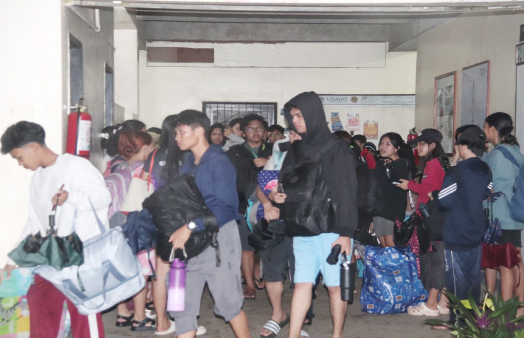
TACLOBAN CITY — More than 500 students from the Visayas State University (VSU) in Baybay City were evacuated Tuesday evening after hours of heavy rainfall caused flooding in parts of the campus, prompting the school’s Disaster Resilience and Management Office (DRMO) to implement emergency protocols.
Engr. Andy Phil Cortes, VSU DRMO director, said the evacuation mainly involved students staying in the upper dormitories, which are at higher risk during flooding events.
“Our protocol is based on rainfall monitoring. If we have three consecutive days of rain, we raise Alert Level 1 so students can prepare for possible evacuation. If the rain continues for six hours non-stop or three hours of heavy downpour, we proceed with evacuation,” Cortes explained.
The evacuation system is part of VSU’s institutionalized disaster mitigation plan, developed by the school’s Disaster Management Committee with inputs from geotechnical engineering and meteorology experts.
Cortes added that the protocol was patterned after the impact of Typhoon ‘Agaton’ in April 2022, which triggered massive landslides in Baybay City and Abuyog, Leyte, killing over 150 people and leaving many missing.
To strengthen disaster preparedness, VSU is planning to integrate disaster management lessons into the curriculum across all courses and even in its laboratory school.
Office of Civil Defense (OCD) Regional Director Lord Byron Torrecarion lauded the move, stressing the importance of instilling disaster readiness among students at an early age.
“In Japan, disaster management is taught as early as elementary school. It’s good that we inculcate this in our education system as well,” Torrecarion said.
He added that Eastern Visayas’ geographical location makes it one of the most hazard-prone regions in the country, making disaster education critical. “This will help build a culture of preparedness and even encourage volunteerism among the youth,” Torrecarion said.
The OCD official also noted that students equipped with disaster management knowledge can help cascade lifesaving information to their families and communities.
The Philippines consistently ranks high in global risk indexes, making proactive measures like those of VSU essential in reducing disaster impacts.
(ROEL T. AMAZONA)



